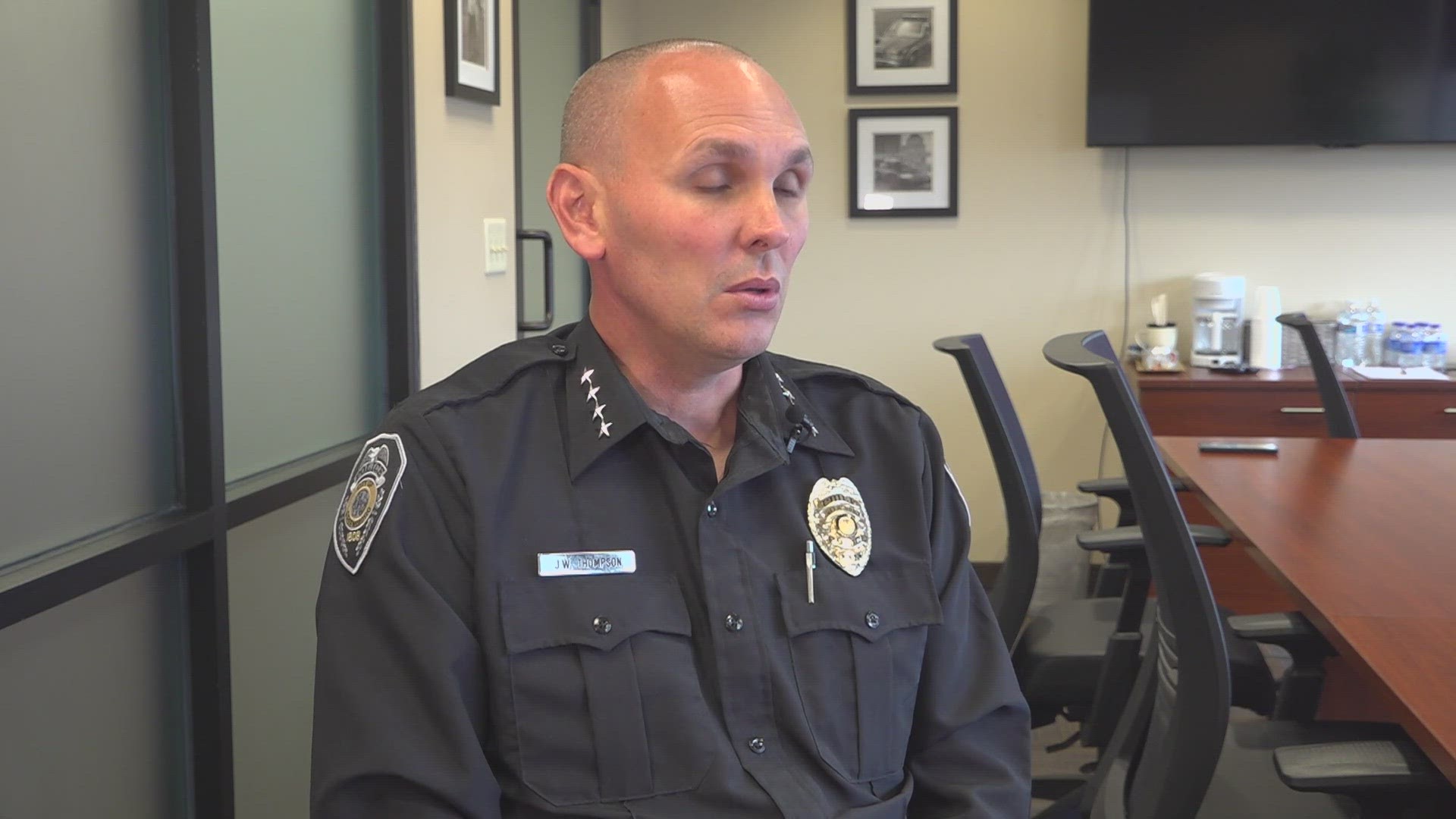GREENSBORO, N.C. — The Greensboro Police Department is making changes to its media relations policy. The chief hopes putting the protocol to paper will educate the community on their policies and increase transparency.
"Critical incidents tend to have the most significant impact on a community, and it really draws a lot of attention to police policy, police practice, police training, and we really just wanted to be open and transparent with the community," GPD Chief John Thompson said.
The newest section of the policy outlines a few things, including when the public information manager (PIM) will release information involving a critical incident, when the chief will release the names of involved officers, and when body-worn cameras and vehicle-mounted camera recordings will be released.
Releasing information during and after a critical incident
According to the new directives, once briefed by on-scene command, the PIM will release information both during and after a critical incident. A critical incident is defined as "any incident that results in the death or serious injury of another person, involving a police employee, including a motor vehicle crash."
Releasing an officer's name
The new policy also states the conditions in which the chief considers ahead of releasing an involved officer's name. The policy states that officers are first notified, measures are taken to consider the welfare of the officer and the officer's family, and the officer has completed a psychological assessment. The directives state the names are only released upon approval by the police chief or their designee.
Releasing bodycam footage
Under North Carolina law, body-worn camera and vehicle-mounted camera recordings can only be released upon approval by a superior court judge. If the petition is granted by the court, according to the new GPD policy, the police department will petition for the release every time they have a critical incident.
"Often times when a critical incident occurs it causes a lot of people to have questions sometimes it's as simple as why did an officer do that? Or is this practice for the police department to do this? Or why didn't they do this? Or could they have used this tool or instrument? So, the second part that really is about an education for the department to understand what we do when we do it, how we do it," said Chief Thompson.
Attorney Jason L. Keith is the lead attorney at Nxtgenlaw. Attorney Keith has handled high-profile cases where he has made requests for body camera footage.
He wants things to change further and to see state law change to bypass courts.
"A lot of times people just want to know what happened and instead of the officer because you can get the police report without having to go before a judge, you can get the officer notes sometimes and the officer's recollection of want happened without going before a judge but the actual video that shows what happens has to go before a judge, it just doesn't sound fair," explained Keith.
Chief Thompson said while he will petition to release these videos, the amount of time it takes for footage to be released will depend.
Things like the status of the investigation will impact how long that process takes.
MORE WAYS TO GET WFMY NEWS 2
Subscribe to our daily newsletter Let’s Get 2 It!
Download the WFMY News 2 APP from your Apple or Google Play store.
ADD THE WFMY+ APP TO YOUR STREAMING DEVICE
ROKU: Add the channel from the ROKU store or by searching for WFMY.
Amazon Fire TV: Search for WFMY to find the free app to add to your account. You can also add the app directly to your Fire TV through your Amazon account.

